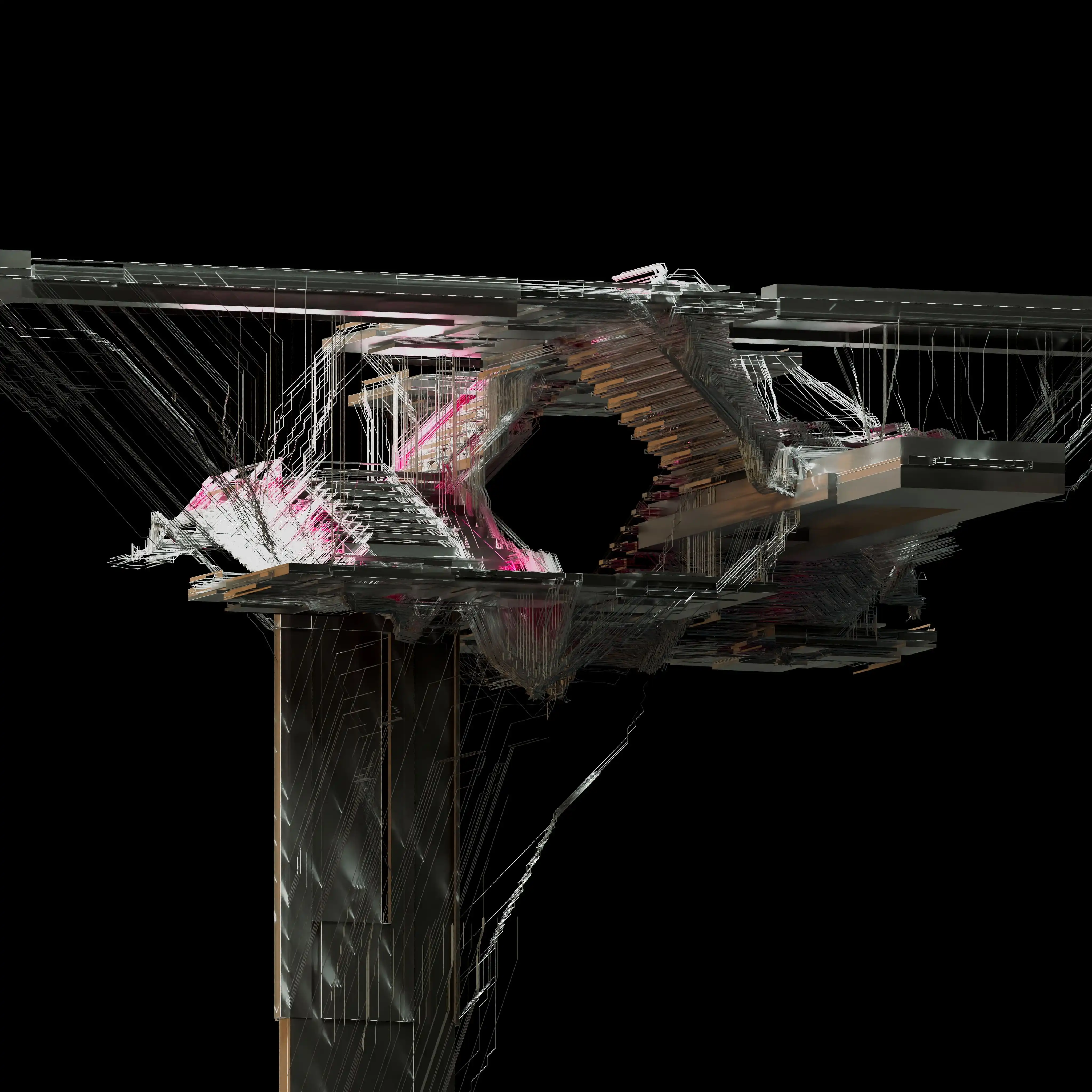The focus of this course is to give students the ability to transform simple shapes into more intricate spatial structures.

Houdini is a powerful software that allows users to create highly intricate models quickly, which has recently led to a growing interest among architects. The Course is aimed at beginners and intermediate users.The two-day workshop serves as an initiation into Houdini’s intricate yet captivating realm, where participants learn to create complex workflows and fit them into an architectural context. The main goal is to familiarize each participant with the user interface, learn basic and advanced techniques, and understand how to work efficiently within the software.
The course offers participants the chance to gain hands-on experience and an understanding of node-based procedural modeling with Houdini. An introduction to a wide range of geometry and surface-based features within the software will be provided. In the end, finalizing and cleaning the created geometries will be shown to prepare to bring them in other software to render. Participants can work individually or in groups on the assignment.
The focus of this course is to give students the ability to transform simple shapes into more intricate spatial structures, such as vertical highrise or horizontal buildings. Using procedural techniques, you will explore ways to decompose and enhance basic geometries and add architectural details. We will also highlight the differences between traditional and procedural modeling approaches.
Students will see how different approaches can be inserted into the workflow for specific tasks and how much control they can have over the entire design process. Through different procedural techniques, they will have the opportunity to see ways to create geometries with numerous variations.
In the end, participants will be able to create procedural applications and models that they can use in many different ways and for various tasks. The most important knowledge students will take with them is that not only the project but also the workflow itself to get to the project needs careful planning/designing.
shiningstudioarchi 2024-11-27 09:21
it was amazing and definitely we need spatial fragments 3
smejkal 2024-11-30 18:37
There are extremely few resources on Houdini in architecture. This was the best one so far.
Andrea Bonafede 2024-12-01 12:33
Very intersting workshop, showing the potential of procedural modelling in Houdini. I would have liked also to see a brief rendering workflow in order to create inspiring images like the ones in the preview of the workshop.
Abdullah AlOtaibi 2025-04-07 16:57
valuable and inspiring
Deepak Puranik 2025-04-11 10:35
good course